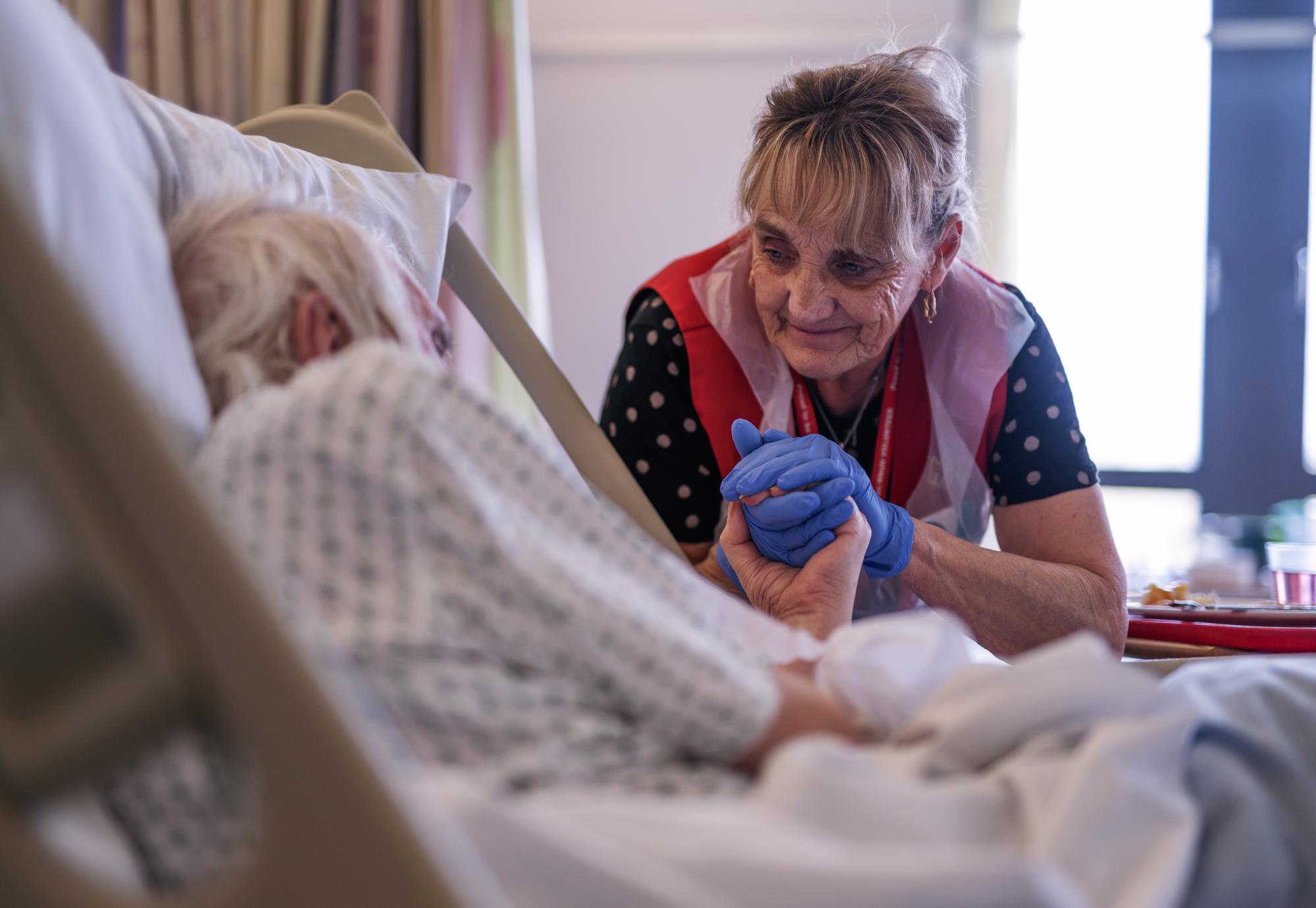Main image: Provided by Helpforce before the pandemic.
Tackling the big challenges our health and social care system faces needs radical thinking and multiple solutions. But there’s one already in place that we are still not using to anywhere near its full potential – volunteers. With the NHS under immense pressure, volunteers can provide vital additional support. And one area we must really increase the use and impact of volunteers in, is end of life care, so that nobody has to die alone.
The huge strain that incredibly hard-working NHS staff are under means that many patients face dying alone on a busy ward, or spend long periods with very little company in hospital or at home. Others may have partners or family and friends who aren’t able to spend as much time with them as they need. The past year has meant large numbers of people have faced increased isolation and loneliness, during a period where relationships and human contact have never been more important.
Dying Matters Awareness Week (10 – 16 May) is an important chance to open up the conversation around death and bereavement, and to highlight the positive impact that volunteering can have in end of life care. This year is focused on the significance of being in a good place to die – which means physically, emotionally and with the right care in place. Volunteers can play a critical role in all of this.
Trained volunteers can support terminally ill people and their families, providing emotional and practical support and companionship at a difficult time. Volunteers can spend extra time with patients and families to help them make sense of what is happening during a time of shock and grief. The benefit is they can help relieve the anxiety and strain that NHS staff face when competing pressures mean they can’t be with dying patients as much as they’d like to be.
We know that volunteering is good for the people being supported, health and social care services, the volunteers themselves, and the community as a whole. From our projects working with a wide range of hospital trusts, and significant research with patients, staff, and volunteers – we know that volunteers can play an important and complementary role alongside staff.
As much as 81% of staff believe that volunteers help improve the delivery of end of life care, 91% of patients – supported by a volunteer – said it improved their mood, while 78% said volunteers helped reduce their anxiety. This also had an impact on nurses as well, with 71% saying that volunteer support helps them feel less stressed. If volunteers were a medical treatment, they would be hailed as a breakthrough.
We are working with health and social care leaders to accelerate the growth and impact of volunteers, building them into service design and inspiring others to do the same. As part of this, we are partnering with Marie Curie to maximise end of life volunteer roles in hospital and community settings – created around each person’s individual needs. Alongside six hospital trusts across the UK, we are exploring different types of volunteer roles in end of life care, so that we can scale up and share the most effective interventions.
But we need many more health and social care leaders to grasp the opportunity. Now’s our chance to radically increase the number of trained and committed volunteers supporting our health and social care system, and to prioritise volunteering as part of the NHS’ recovery.
As a result of our ageing population, in 20 years' time there will be 100,000 more people dying each year in the UK. Demand for end of life care is set to increase rapidly, as more people live for longer.
When volunteers are built into the design of health and care services from the beginning, they can be transformative. We regularly hear from volunteers about what a difference they are making, and how fulfilling they find it. Just days ago, Helen, a 43-year old from Hertfordshire, told us about the companionship she’s been giving to elderly patients at the end of their life who otherwise would have no visitors by their side.
Together we must go further and faster, so that many more people experience the wide-ranging benefits that volunteers offer. Volunteering is far from a ‘nice to have’ or an optional add-on. It must be seen as a core component of good health and social care. Volunteers are a critical part of our NHS’ future. If ever there was a time to seize the moment for volunteering, this is surely it.
For more information on how to accelerate the growth and impact of volunteering, contact: [email protected]



















